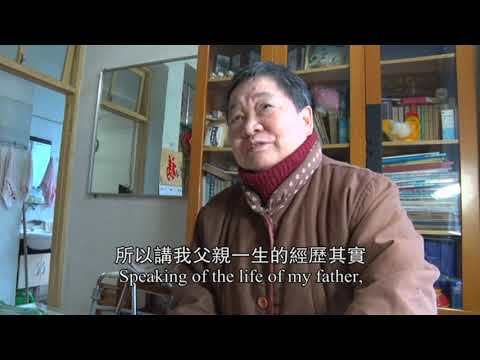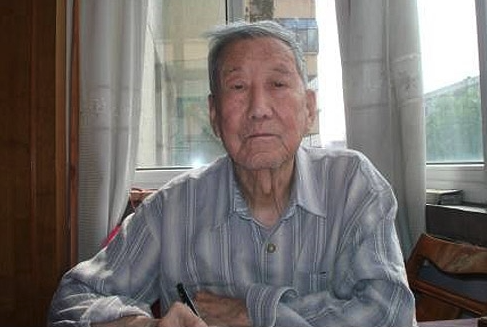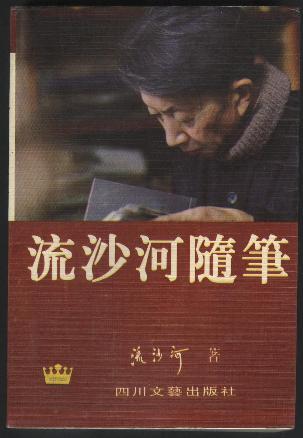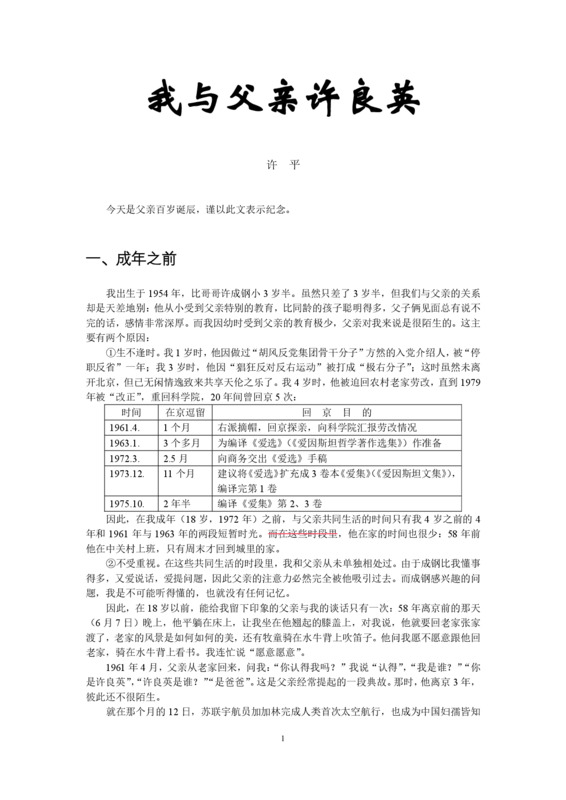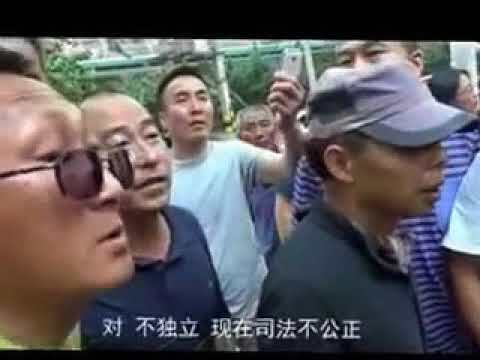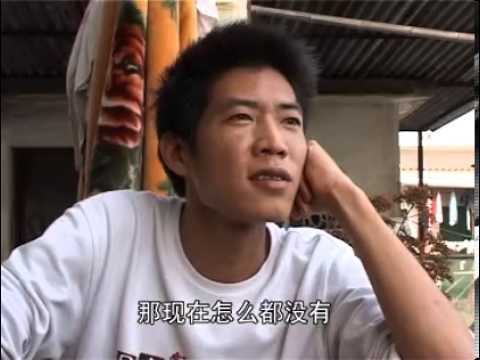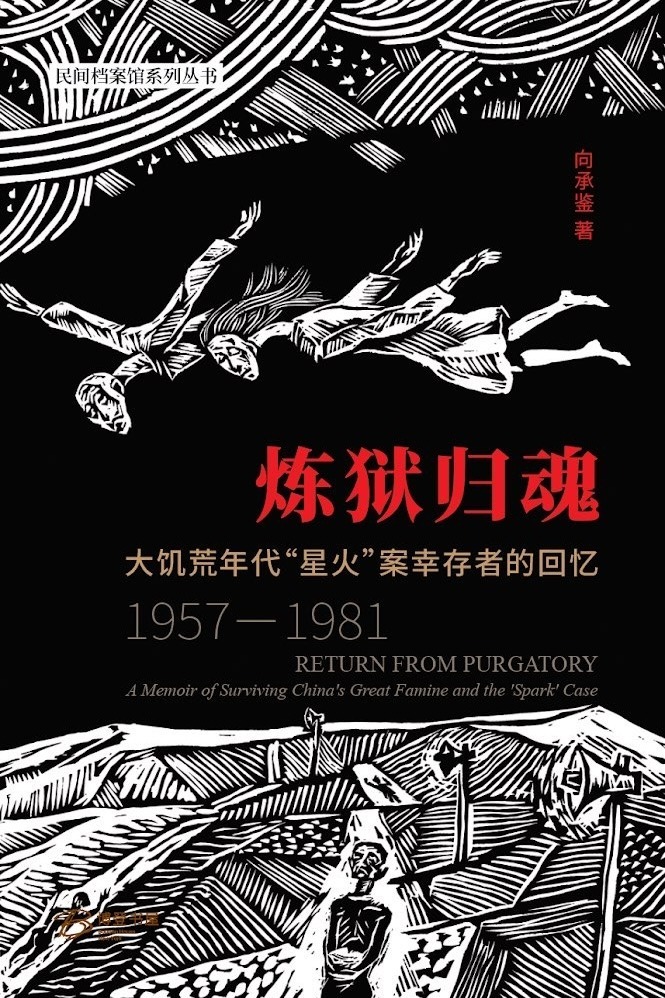Explore the collection
Showing 65 items in the collection
65 items
电影及视频
In Search of Lin Zhao's Soul
Hu Jie narrates the life of Lin Zhao, a Christian dissident who was condemned as a Rightist in the late 1950s and executed during the Cultural Revolution. Prior to becoming a mentcritic of the government, Lin Zhao was an ardent believer of communism. She demonstrated talent in writing and speaking as a star student in Peking University. However, after criticizing the government in 1957 during the Hundred Flowers Campaign, she was cast as anti-revolutionary. Despite the government’s attempts to silence her, Lin Zhao continued to speak and write publicly, including contributing two epic poems to Spark, an underground student-run journal. In 1960, she was arrested, and despite being released briefly in 1962, spent the rest of her life behind bars, under extremely poor living conditions. Nevertheless, she continued to write in prison, sometimes with her blood. In 1968, at the age of 36, she was executed by a firing squad.
In this documentary, Hu Jie showcases many of Lin Zhao’s surviving writings and poetry. These pieces often contain criticisms of the communist regime, as well as commentary on policy issues pertaining to labor and land reform. In making this film, Hu Jie traveled around China to interview friends and associates of Lin Zhao, who knew her as a student, activist, or prisoner. This documentary includes excerpts from interviews with them, which inform us about Lin Zhao’s personality and motivations.
This documentary has contributed to a widespread revival of interest in Lin Zhao, who had almost become a forgotten figure until the film’s appearance.
Book
In Search of My Homeland
“In Search of My Homeland” is a collection of essays in three volumes written by Gao Ertai during his exile abroad. In this book, Gao looks back on his life. From his hometown of Gaochun, a small town in Jiangsu Province, to Suzhou, then to Lanzhou, Jiuquan, Dunhuang, Beijing, Chengdu, and the United States, Gao has undergone tremendous suffering, lost his home and family, and finally had to go into exile in a foreign country. Even though the work is widely regarded as having great literary merit, Gao uses real names and places, which makes the work a valuable historical document, especially for describing the Great Famine, and the brutal suppression of intellectual life during the Cultural Revolution at the Dunhuang research academy, which is one of China's most prestigious cultural institutions.
In an [interview](https://web.archive.org/web/20240130211408/https://www.aisixiang.com/data/80804.html), Gao explained why he wrote the book: "Searching for my homeland is nothing but searching for meaning.... Life is short and small, and its meaning can only be rooted in the external world and in the long history. My sense of drift and meaninglessness, that is, a feeling that the world has no order, history has no logic, and the individual has no home, seems to be a kind of destiny. My writing is nothing but a resistance to this destiny."
In 2004, a censored version of the first two volumes of this book was published by Huacheng Publishing House in Guangzhou; in 2011, an updated version was published by Beijing October Arts and Literature Publishing House, but still censored. The version uploaded to our archive is the traditional Chinese version of the complete three volumes published by Taiwan INK Publishing House in 2009.
Film and Video
Jiabiangou Elegy: Life and Death of the Rightists
A five-part documentary by the filmmaker and feminist scholar Ai Xiaoming on the persecution of inmates at the Jiabiangou labor camp in Jiuquan, Gansu province, where more than 2,000 people died. The movie includes interviews with the few remaining survivors and documents efforts to commemorate the dead. The director interviewed survivors of Jiabiangou and the children of the victims and listened to their stories about the past; she also found former correctional officers and their descendants to understand the causes of labor camps and the Great Famine from different angles.
Shot by Ai and a team of volunteers, the film presents the conflict between the preservation and destruction of memory.
Book
Journey of Grace, The
Li Jinghang, a native of Tianshui City, Gansu Province, 1922-2016, graduated from the Mathematics Department of the Northwest Normal College in 1949. In the fall of the same year, he was employed as a mathematics teacher at Tianshui No. 1 Middle School. In 1957, he was wrongly classified as a Rightist and sent to Jiuquan, Gansu Province to be reeducated through labor for nearly three years; in 1960, he resumed his work as a teacher at Tianshui No. 1 Middle School. In 1962, he removed his hat as a Rightist. He was rehabilitated in 1978. In 1980, he was transferred to Tianshui Teachers' College (which was upgraded to an undergraduate institution in 2000). After retiring in the fall of 1987, he joined the Church to serve full-time.
In 1957, Li Jinghang was labeled a rightist and sent to Jiabiangou for re-education through labor. In 1960, he was transferred to the Mingshuihe Farm in Gaotai, where the conditions were even worse, and he was subjected to a great deal of torture and abuse. The fourth chapter of his autobiography, "Chronicle of the bitter life in Jiabiangou," and the fifth chapter, "Chronicle of the life after returning home," are written about his bitter experience in Jiabiangou. From this, we can see the glory of humanity and the power of faith in the midst of suffering. This book was published by a Hong Kong Tianma Book Company Limited in 2003, with a print run of 2,000 copies, and reprinted once in 2004.
Film and Video
Let the Sunshine Reach the Earth
Wang Lihong is a Beijing netizen, civilian journalist, and public service volunteer. Wang was accused of “picking quarrels and provoking trouble” for supporting three netizens in Fujian. On August 12, 2011, the case was heard for the first time in the Wenyuhe Court of the People's Court of Chaoyang District, Beijing. This film includes interviews with Wang Lihong's relatives, friends, defense lawyers and netizens, and records the historical scene of onlookers in the courts.
Ai Xiaoming’s film “Postcard,” also released in 2011, elaborates Wang Lihong’s activism in broader strokes, while “Let the Sunshine Reach the Earth” focuses on the process of her trial.
This film is in Chinese with Chinese subtitles.
Book
Lin Zhao: No Longer Forgotten
This book contains a number of articles in memory of Lin Zhao. It concerns the death of Lin Zhao as well as Lin Zhao's love, pursuits, and disillusionment. This book was published by Changjiang Literature and Art Publishing House in 2000.
Book
Liushahe Essay
Liushahe is a famous Chinese writer and scholar, who entered Sichuan University in the fall of 1949, and was criticized and stigmatized nationwide during the 1957 Anti-Rightist Movement for his work *Grass and Trees* named by Mao Zedong himself, and then subjected to a variety of labor reforms (building roads during the day and sawing wood in the evening) for a cumulative total of 20 years. In 1979, he was transferred back to the Sichuan Provincial Literature Federation. Since 1985 he has been writing full-time, and has published a number of books, including *Essays on the Liusha River*. This book was published by Sichuan Literature and Art Publishing House in 1995. Many of the essays are related to his experiences when he was under labor reform. In November 2019, Liushahe passed away in Chengdu at the age of 88 due to illness.
Book
Mao in Power (1949-1976)
The author of this book, Shan Shaojie, is a scholar from mainland China. For several years, he wrote this book from an independent position. Former political secretary of Mao Zedong, Li Rui, and Princeton University professor, Yu Yingshi, wrote the foreword for this book. In addition to a systematic account of the Maoist era, Shan Shaojie's book "Mao in Power" emphasizes that almost all members of the Communist Party's highest decision-making echelons, with the exception of Mao Zedong, made efforts, in varying degrees and successively, to stop Mao's insanity. Moreover, they took turns to resist and ultimately to leave Mao alone, but did not really stop Mao's madness. This book was published by Linking Publishing in 2001 and has been reprinted several times.
Book
Mao: The Unknown Story
This book presents the dramatic life of Mao Zedong, revealing a wealth of unheard-of facts: why Mao joined the Communist Party, how he came to sit at the top of the Chinese Communist Party, and how he seized China step by step. Writers Jung Chang and her husband Jon Halliday took ten years to complete this book, interviewing hundreds of Mao's relatives and friends, Chinese and foreign informants and witnesses who worked and interacted with Mao as well as dignitaries from various countries.
Purchase link:https://www.amazon.com/Mao-Story-Jung-Chang/dp/0679746323.
Film and Video
Memory of Lin Zhao
Independent director Tiger Temple began shooting this film in 2010 and completed it in 2012, with subsequent revisions. The film features interviews with Lin Zhao's former lover Gan Cui as well as interviews with several independent scholars such as Qian Liqun and Cui Weiping. It is a powerful addition to Lin Zhao's memory. This film was selected as one of the top 20 finalists in the 2012 Sunshine Chinese Documentary Awards.
Article
My Father Xu Liangying
Xu Liangying is a well-known Chinese physicist, thinker and social activist. He has translated “The Collected Works of Albert Einstein”, published by The Commercial Press (three volumes, 1979). He was branded as a rightist in his youth, but in his later years he pursued constitutional democracy and became an outspoken public intellectual. This is a memoir written by his son Xu Ping after his passing in 2013.
Book
My Mother :Gao Yaojie
Author Eva writes about her relationship with Gao Yaojie, a Chinese doctor. Dr. Gao Yaojie, who was severely repressed by the Chinese government for exposing the mass infection of Chinese farmers in Henan Province, China, by selling their blood, had no choice but to leave China at the age of 78 and go into exile in the United States. The dissemination of her story is strictly forbidden in China. In this book, author Eva describes Gao Yaojie's noble heart, her story, and her experiences.
Book
New Biographies of the 1957 Rightists
According to official CCP statistics, some 550,000 people were directly labeled as rightists and persecuted during the Anti-Rightist campaign. These people, as well as others implicated in the campaign, are mostly unknown, except for a very few. The author, Shen Yuan, who was also labeled as a rightist when he was a university student in 1958, devoted himself to collecting and researching historical data on the anti-rightist campaign. He has compiled a book entitled Biographies of the 1957 Rightists, which attempts to present the truth about the Anti-Rightist campaign and its victims. The book is divided into four volumes of about 1.2 million words, containing the stories of about 600 rightists and about 240 historical photographs. 2016 marked the 60th anniversary of the Anti-Rightist campaign, and Shen Yuan used the original book as the basis for his New Biographies of the 1957 Rightists, expanding the number of people included to 1,588. Sha Yexin and Wu Yisan were both involved in the compilation of this book.
Film and Video
New Citizens’ Trial
In late January 2014, on the eve of the Lunar New Year, Xu Zhiyong, Zhao Changqing, Ding Jiaxi and other advocates of the New Citizens’ Movement were charged with "gathering a crowd to disrupt order in a public place." The case was heard for the first time in courts at different levels in Beijing. This film intersperses on-site records with interviews with defense lawyer Zhang Qingfang, scholar Guo Yuhua, entrepreneur Wang Ying, and others to present citizens' understanding of the New Citizens' Movement.
This series of films are in Chinese with Chinese subtitles.
Film and Video
Onlookers
People from all over China rush to the scene of China's trial of Bo Xilai, the former Chongqing Party Secretary of the Communist Party of China. The trial took place in August 2013 at the Jinan Intermediate People's Court in Shandong Province. Reporter Liu Xiangnan captured the scene.
Film and Video
People’s Representative Yao Lifa
Yao Lifa, a teacher from Hubei, was an independent candidate for the 2003 General Election of Deputies to the National People’s Congress. This documentary records the process in which Yao publicized and educated the public on election laws, and his experience with the grassroot electoral campaign. This documentary also reflects the budding grassroot awareness of civil rights in China through voices from the media and ordinary people.
This film is in Chinese with Chinese subtitles.
Book
Personal experiences of political movements
This book is a collection of many authors, most of whom were former senior officials of the Communist Party of China, such as Li Rui, Xiao Ke and others. Through the author's recollections, we can learn about the political movements of the Mao Zedong era, including the Cultural Revolution, the Anti-Rightist Movement, etc., as well as the details of many unjust cases, such as the Hu Feng case, which is quite convincing. This book was published by the Central Compilation and Translation Bureau Press in mainland China in 1998.
Film and Video
Postcard
After retiring from her job as a cadre, Wang Lihong fulfilled what she saw as her civic responsibility to become more active in women’s rights in China, especially the protection of their legal rights. In 2009-2010, she became involved in the “Fujian Netizen Case,” which resulted in the arrest of three human rights activists, who all sought to investigate the death of a 25-year-old women believed to have been murdered in a gang rape by men associated with the local police. Wang Lihong wrote letters to the General Secretary of the Fujian Provincial Committee of the Communist Party of China every day for nine consecutive days, calling on the authorities to let them go home for the New Year. For this reason, she was criminally detained by the authorities in March 2011 on suspicion of "picking quarrels and provoking trouble." The case was heard by the Beijing, Chaoyang District People's Court on August 12; nearly a month later, on September 9, the court issued a guilty verdict and sentenced Wang Lihong to nine months in prison. The film documents her case, and raises questions about the accountability of the local government and police. Another one of Ai Xiaoming’s films, “Let the Sunshine Reach the Earth,” documents Wang Lihong’s trial process in more detail.
This film is in Chinese with Chinese subtitles.
Film and Video
Ram
The documentary "Ram" was filmed by independent director Tiger Temple in 2016 and is available here in a revised version by the author in 2021. The film documents a real-life incident that took place in Xi'an during the "1983 crackdown". The encounter of the artist Gong Yang (real name Li Xiaoming), the main character of the documentary, is quite representative. It reflects the cruelty and absurdity of the "1983 Crackdown" political campaign launched under the direction of Deng Xiaoping.
book
Return of the Soul from Purgatory: Memoirs of a Survivor of the "Sparks" Case from the Great Famine Era
In 1960, a group of faculty and students from Lanzhou University, who had been labeled Rightists and sent down to rural areas in Tianshui, Gansu, personally experienced the Great Famine. They self-published <i>Spark</i> magazine to expose and criticize the totalitarian rule that led to this catastrophe.<i>Spark</i> only published one issue before its participants were arrested and labeled as a counterrevolutionary group. Many were sentenced to long prison terms, and some were even executed. <a href=“http://108.160.154.72/s/china-unofficial/item/1759#lg=1&slide=0”>The first issue of <i>Spark</i> and more information about the "Spark Case" can be read here</a>.
<i>Return from Purgatory: A Survivor’s Memoir of the ‘Spark Case’ in the Great Famine Years (1957–1981)</i> is the autobiography of Xiang Chengjian, a key participant in <i>Spark</i> magazine. At the time, he and another student were responsible for printing the first issue, and he contributed six articles to <i>Spark</i>. Due to his involvement, he was sentenced to 18 years in prison for his role in the Spark case and was not rehabilitated until the early 1980s.
This memoir is divided into three sections, with a total of thirteen chapters spanning over 350,000 characters. It documents Xiang’s journey from being labeled a Rightist and sent to perform forced labor, to his arrest and 19-year imprisonment for his involvement in <i>Spark</i>, and finally to his struggle for rehabilitation and efforts to rebuild his life after release. In the book’s preface, scholar Ai Xiaoming offers the following assessment:
"Xiang Chengjian’s memoir holds significant value for the study of the intellectual history of contemporary China. First, it serves as another important testimony of the “Spark Case”, following Tan Chanxue’s memoir <i><a href=“”>Sparks: A Chronicle of the Rightist Counter-Revolutionary Group at Lanzhou University</a></i>, making it a crucial historical document on this act of resistance. The author reconstructs the social context before and after the case and describes how the young intellectuals behind <i>Spark</i> bravely challenged totalitarian rule. Second, the book provides a detailed account of labor camps in western China, with the author documenting his 18 years of forced labor in Gansu and Qinghai, unveiling a western chapter of China’s Gulag system. Third, it is a deeply personal intellectual history of a resister, showing the immense suffering, trials of life and death, and personal resilience under the crushing force of state violence."
The book’s appendix includes Xiang Chengjian’s six articles for <i>Spark</i>, an in-depth investigative report on him by journalist Jiang Xue, and a chronological record of the Spark Case compiled by Ai Xiaoming.
<i>Return from Purgatory</i> is published by Borden Press in New York and is the first book in the “People’s Archives Series”, published by the China Unofficial Archives. The author, Xiang Chengjian, has generously authorized the archive to share the book’s digital edition. Readers are encouraged to purchase the book to support the author and publisher.


